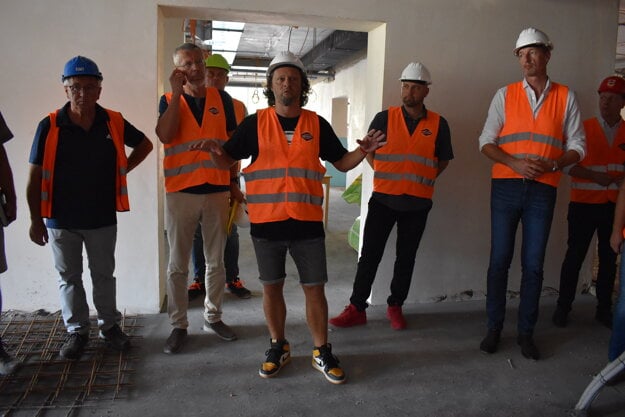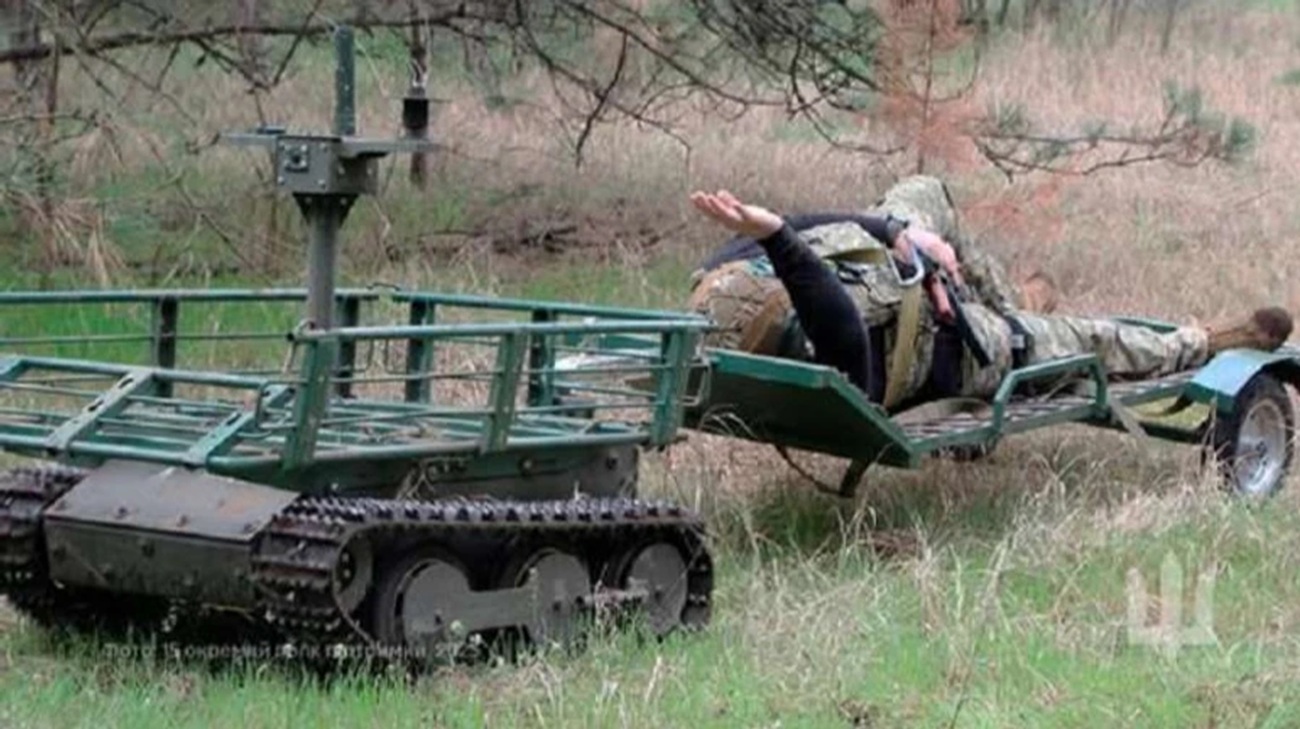A few years in a few years will not have anyone to take away blood, the analysts say

BRATISLAVA. While Slovakia will need almost 43,000 nurses in 2035, they will only have more than 40,000, the Council for Budgetary Responsibility. In the next ten years, in 2045, there will be seven thousand sisters.
Even higher salaries that nurses already have at the level of their Czech colleagues are not helping to reverse the trend, the Council points out.
Nor will those interested in studying at health schools that do not take in some cities today because they do not have classes for them. Slovakia will not save even sisters from Ukrainebecause in recent years it has not received them for administrative obstacles, so they went further west.
The Council, which, according to the Constitution, is an independent body of monitoring and evaluation of the development of the Slovak Republic, on Thursday published Forecast of the development of nurses by 2050.
The nurses are considered by the analysis of health and practical nurses, medical assistants and midwives.
« In our analysis, we use the term ‘sister+’ for all kinds of ‘sister’ professions, although we perceive the differences in education of IV competences between individual professions, » writes its authors, analysts of the Council František and Zuzana Múčkovci.
« Sister+ there is no one in the European Union, » says Iveta Lazorová, head of the Slovak Chamber of Nurses and Midwives.
The practical nurse and medical assistant are not sisters because they do not have a qualification. They have only high school with graduation and not college, as nurses must already have today.
In the article you can read
- Why are nurses for healthcare crucial,
- Why 40 percent of health school graduates will not enter health,
- Why schools do not take all those interested in this profession.
Impaired treatment availability
« The real problem of the availability of health care will be the development of the number of nurses rather than doctors, » the advice analysts write.
According to their data, doctors will increase in the future, even more than the demand for them. The opposite trend can be expected for the next 25 years. There will be more and more, but there will be fewer every year.
More doctors, as Slovakia will need, will have in 2048, the Council is forecasting.
According to analysts, the negative trend in nurses will begin much earlier, it can be expected in the next decade. Múčka expects that there will be fewer sisters than around 2032 than the system will need.
What is the most angry nurses? It is not money Read
Today, there are 39,336 nurses in Slovakia, according to the Council, the number will grow slightly until 2032, when there should be 40 904. However, there will be 41 124 sisters. The disproportion between the number of nurses and the demand for them will still grow in the coming years.
The President of the Chamber of Nurses disagrees with an estimate. « There is already an acute lack of sisters, » says Lazor.
In the most advanced countries of the world associated in the organization for economic cooperation and development (OECD), the average of the number of nurses per thousand inhabitants is 8.4, in our country it is only 5.5 sisters. « We are missing more than 13,000 sisters, » says the chamber boss.
Múčkovci consider the aging of the population to be one of the key factors. To put it simply – the higher the share of seniors, the more nurses and doctors will need.
Sisters in numbers by advice
- Number (2025): 39 336
- Number of Missing Nurses (2045): 7000
- Average salary: 2070 euros in gross
- Multiple of the average wage in the national economy: 1.45
Source: RRZ
Therefore, according to the study, more and more health care professionals will move from hospitals to long -term care facilities. The number of older people who will need care in a constitutional facility will grow for an extending life.
It is also one of the main ideas of the reform of hospitals since the Minister of Health for Direction Andrey Kalavskathat seeks to allocate more long -term care devices. However, many hospitals to happen are prevented.
« People will say: If they are not sisters, the doctor will do it even without a sister. Yes, they will do, but people will wait for the doctor to do a sister robot. According to him, the availability of care will deteriorate.
« The doctor can take blood and carry out several performances that are in the competence of the nurse, but it is not his primary task, » explains Lazorova. « Its role is to diagnose and prescribe treatment. »
Salaries are higher, it is still not enough
In the coming years, generationally strong years of nurses will start retirement.
« Nurses, unlike doctors, quite strictly apply the retirement age to the time of retirement age, » Múčkovci points out. Unlike most nurses, many doctors work long after reaching retirement age.
According to analysts, the trend will slow the growing age of retirement in the coming years and, in particular, the fact that female is approaching the male.
Another factor may be that part of the nurses may work in the retired facilities for long -term part -time patients.
Three released nurses defeated the hospital Read
Despite these slowing factors, Múčkovci assume that retirement will cause a crisis in the Slovak health care after 2030. More sisters leave the health care than it comes.
Another important factor is that from secondary health school graduates up to 40 percent will not enter health. « In our projection, we are still expecting the starting point that this number will not change fundamentally, » the forecast says.
Lazorová is the first reason why graduates do not start work in health care men. Analysts show that nurses’ salaries increased significantly in our country after 2020.
In 2023, the average salary of the nurse was gross with all surcharges of 2070 euros, only 18 euros less than in the Czech Republic. In terms of multiple of the average wage, Slovak nurses have higher salaries than Czech. Their wages reach 1.45 times the average wage, in the Czech Republic it is only 1.2 times.
Lazarova agrees, but also says that for current graduates they are still low salaries.
The flour says that the nurses in our country will be « more » than doctors because they have a lower hourly wage. And this is another reason for which graduates do not want to go to health after school. « They don’t want to have so many services and overtime. »
There are also poor working conditions for the opposition of graduates. Not only a bad organization of work, but also old and neglected hospitals.
We do not take all those interested in the work of a nurse
According to analysts, nurses are unnecessarily declining by the fact that secondary health schools do not take all suitable candidates, although they could.
« We have eight schools that could consider opening another class, » writes the Council in the forecast. According to her, they are secondary medical schools in Trenčín, Košice-Juhu, Žilinain Banská Bystrica, Trnava, Poprad, Michalovce and Prešov.
If they did so, ten classes could be added, from which 240 graduates could be based on a year.
« At the horizon of ten years, healthcare would already feel such a difference, » the analysts write.
The nurse went to Sweden. I was overloaded, he says Read
The SME daily addressed the Ministry of Education, wrote that it does not receive applications for the number of pupils from the county under these schools.
A spokeswoman for the Trenčín County Lenka Kukučková says that when determining the number of pupils in secondary health schools, the county is managed by the need for the labor market. At the same time, the Trenčín Health School reports more interested in the adoption, and the Chamber of Sisters is already talking about their lack.
According to her spokeswoman Eva Lacová, the Žilina County has no problem opening another class if the Ministries of Health and Education agree. « The problem could arise with a lack of teachers of professional medical subjects, » she said.
According to her, the county plans to open a new secondary medical school with two classes in Martin within two years, where they are to build a new university hospital by the end of 2028.

Beata
Balogová
Editor -in -chief

We haven’t fastened this article, but we need your support.
We leave some articles unlocked to have all access to important information. They can also be brought thanks to our subscribers.










